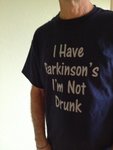 Narrowsburg
NarrowsburgLight Rain Fog/Mist, 43°
Wind: 8.1 mph
 Narrowsburg
NarrowsburgIf you’re ill, going to a support group can feel like just one more thing to do, easily skipped if it’s been a bad day.
Re-think that.
A healthcare provider can educate. A …
Stay informed about your community and support local independent journalism.
Subscribe to The River Reporter today. click here
This item is available in full to subscribers.
Please log in to continue |


If you’re ill, going to a support group can feel like just one more thing to do, easily skipped if it’s been a bad day.
Re-think that.
A healthcare provider can educate. A counselor can listen. But the support group—a group of peers, who share an experience and have practice dealing with the issues that can arise—offers unique help.
“The benefits of support groups are numerous,” said Carol Kneier, community health manager at Wayne Memorial Hospital and former longtime leader of a diabetes support group.
For one, you realize you aren’t alone. People can share thoughts, “express feelings and learn. Some individuals find them helpful and comforting,” she said.
Second, “support groups are a great complement to health care, especially ones that focus on specific conditions or illnesses or diseases,” Kneier said. Knowledge gaps happen, especially when you’ve just been diagnosed and half of what the doctor said goes in one ear and out the other. The support group offers a place to figure out what you don’t know and then fix that.
Groups in rural areas face unique challenges, and the biggest came up in every single group I talked to: transportation. How do you get people there when travel time is a half hour or more, and some don’t drive? Plus, “you’re exhausted by the drive to get there,” said Angie Page, who with her husband John Webber run a Parkinson’s support group in Harris, NY. People with a condition that makes it difficult to travel, she said, find it difficult to get to a meeting.
Organizing a time that works for everyone is another question. People have jobs, kids to care for, times of day that are better or worse depending on meds. “It’s hard to find a time and day that works for everyone,” Page said. Kneier added, “When you are in a rural area, you may be limited in resources or individuals to facilitate these groups and cannot have multiple times and places.”
And then you have to find a place. “As you know Wayne County is very long and it you have a support group in Northern Wayne, someone from Southern Wayne may not want to travel that far even though they know it will be helpful. Or may-be they don't have a car or a support person to bring them,” Kneier said. Sullivan County too is large, and a person in Long Eddy may not want to travel 45 minutes to Harris for a group.
Some groups shut down for winter when travel can be hazardous and tiring.
Online support groups can help, but they presume good internet access or cell coverage, and that’s not guaranteed here.
Plus, there are misconceptions—Kneier says it depends on the topic. Mental-health or substance-abuse groups face stigma. Some diseases, like Parkinson’s, are associated with age, and those who get it young may think the group has nothing to offer them. “Often times, people may think they do not need help and that they are doing just fine,” she said.
Interested? Read on. There are short interviews with several group leaders and a starter list of local groups online. If you don’t find what you need, see the tips on starting one.
HONESDALE, PA—“I know a lot of women who have five-year-old children. I don’t know a lot of 60-year-old women with five-year-old children.”
That’s what one woman told Allyson Pretty-Hopkins, and that’s a major impetus behind Grand Love, the support group Pretty-Hopkins runs. These are grandparents raising grandchildren, a silent group who have stepped up and re-embraced childrearing at a time their peers are retiring.
Officially, 89,000 grandparents fall into this category, “and I think that’s underestimated,” Pretty-Hopkins said. Not everyone goes through the court system to make the adoption official. “Out of fear, they keep it to themselves.”
There’s no question that the new role turns lives upside down, Pretty-Hopkins said. Challenges range from the financial to simply not having as much energy for keeping up with young kids.
But always, people have suggestions and sympathy. You can learn from the best of all sources, Pretty-Hopkins said. “The group supports and nurtures. Who supports us better than a group of our own peers?” Plus, “It’s judgment-free.”
Grandparents learn how to advocate for their grandchildren at school and in the court system. Childcare is usually provided so the participants can speak freely.
Grand Love meets at 6 p.m. on the first and third Thursdays of the month at the David Katz Conference Room at Wayne Memorial Hospital. Contact Allyson Pretty-Hopkins at 570/253-5838 for more information.
MONTICELLO, NY — The bookmark reads, “I am not a product of my circumstances; I’m a product of my decisions.”
This could be Rismii Tubo’s motto, and it’s the lesson she’s bringing to others.
Two years ago, the Bloomingburg, NY resident started a Women’s Empowerment Group with Action Toward Independence, and she hasn’t looked back.
The group—which meets at the first and third Thursdays of the month at Action Toward Independence, 309 E. Broadway, Ste. A—started with a group of ladies with a mix of needs and goals. For some, they “were in a denial state... They felt no one liked them,” Tubo said. She aimed to change that.
Change happened. “There was no bad-mouthing,” she said. There was “a lot of discussion, a lot of input.”
A music therapist came in. There were arts and crafts. Women talking, sharing their problems and experiences. “Ladies can help each other, it’s an open forum,” Tubo said. “You know what they say, ‘Each one teach one.’”
Most importantly, “There’s no judgment, anyone can get caught up in a situation... and it’s a hard thing to deal with.” So the goal was “to get them a little stronger with themselves.”
And it worked. After each session, “they leave and they’re smiling… [I want to] make them feel like a person... By the time they [finished] they were feeling better.”
Tubo wants to do so much more. “Transportation is a problem... There is so much in the county that they could do.” The new bus service is a huge help but it doesn’t yet run near some of the places Tubo would like to take the ladies. She’s looking for solutions.
Because the group matters.
“It’s a comfort zone... a family situation.” And as in life, “You find out how strong you can be.”
For more information, contact Action Toward Independence at 845/794-4228.
MONTICELLO, NY — Receiving a psychiatric diagnosis is never easy. Sure, there might be a rush of relief at first—“Oh, that’s what’s wrong!”—but dealing with the aftermath can be tough. There is misunderstanding, stigma, side effects from medication, fear... and all of these can be hard for family to understand and the patient to deal with.
Support groups are a key part of treatment.
“I think there’s an important piece that support groups can play,” said Lori Schneider, executive director of NAMI Sullivan County. “Medication is important, a good therapist is ideal… [but] this is a peer support group, other people with similar experiences [who can say] ‘this is what I found useful.’”
The National Alliance on Mental Illness (NAMI) provides “support for families and people who have a psychiatric diagnosis,” Schneider said.
“There’s a group for people with a diagnosis, led by a person with a diagnosis,” Schneider said. Meeting times can change, so call first.
The family support group Sharing and Caring is “90 percent support and 10 percent education,” she said. NAMI Connection is for people with psychiatric diagnoses who are in recovery (and it is led by a peer), there is a suicide bereavement group, and Compeer, which recruits caring members of the community to be friends with people with similar interests, who are also dealing with psychiatric diagnoses.
Schneider, who is also an actor, received accolades this year for her performance in “Every Brilliant Thing,” a play about a character (Schneider) who creates a list of life’s joys for her suicidal mother.
There are so many joys out there. Support groups can help you find them. People come for the community, she said, and they stay because it’s enjoyable and because it helps.
For the support groups, call for schedules or check NAMI-SC’s Facebook page, NAMI Sullivan County, NY. Call 845/794-1029 or email at namiofsullivan@gmail.com
In Pennsylvania, contact NAMI PA, Scranton Area Chapter at 570/342-1047 or online at namipascranton.org.
HARRIS, NY — “Answers are everywhere,” says Angie Page. She and her husband, John Webber, who has Parkinson’s disease (PD), found a good one.
PD, a neurological disease that affects the ability to move, also slows speech. In culinary school, Page said, students learn to say “knife in the sink,” or “behind,” as a quick warning to others. She and John use “heard” to say that one heard what the other said, but maybe it’s taking a while to come up with an answer, or maybe the other is doing something and can’t stop.
Enthusiastic, they shared the tip with their PD support group, which meets monthly at Catskill Regional Medical Center in Harris, NY.
John was diagnosed in 2013, and they soon joined the support group in Honesdale. It had 45 people and had so much to offer, but it was also an hour’s drive from their home so they looked closer and found the group at CRMC, run at the time by Harriet Gelinson. They still attend the Honesdale one when they can.
“This group has been together for over 15 years,” Page said. “It started with Murry Korn, [then] Harriet ran it for maybe four years.” A little over a year ago, Angie and John took over.
“The biggest thing the group does is take away the loneliness, it takes away that worthless tag. You [can] feel alone, shunned, different. With a group you feel like ‘hey, I’m with my people,’” she said.
They also share experiences, “like with deep brain stimulation. People who have had it can talk about it from real world experience.” They also have speakers; recently Deborah Worden from Action Toward Independence talked about her organization and how it can help.
And there are worries, made less hard because everyone understands. “With PD, everyone is talking slower, or they’re getting thoughts together, so there’s patience,” Page said. Strangers get irritated. But, “everyone is one accident away from being disabled. One day you don’t have PD, and the next week it feels like your feet are nailed to the floor.”
To learn more, leave a message for Angie Page at 845/292-8715.
Start your own group
Angie Page, who leads a Parkinson’s support group in Sullivan County, offers these tips for starting your own group:
Comments
No comments on this item Please log in to comment by clicking here